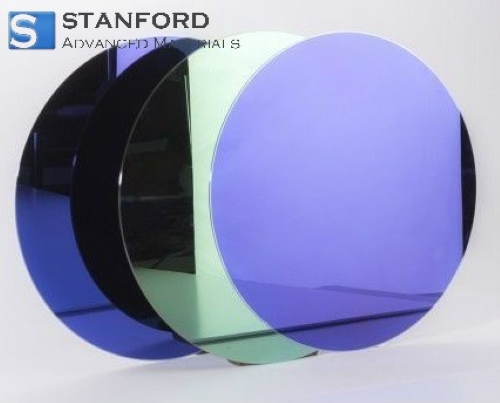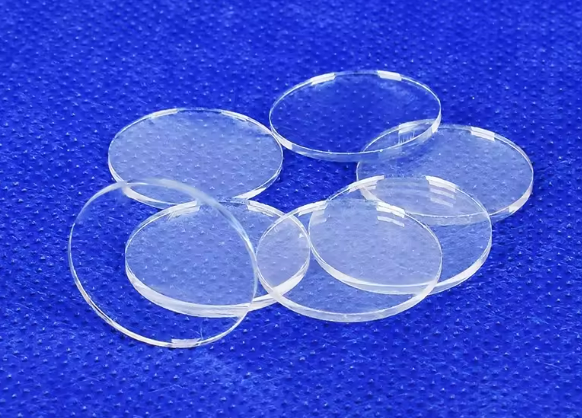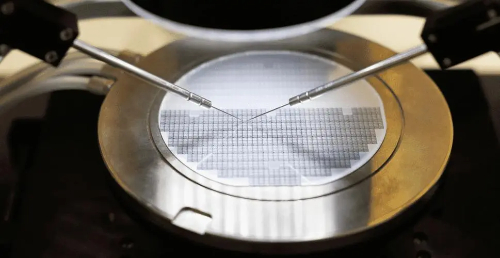Different Grades of Titanium and Titanium Based Alloys
Apart from 4 grades of commercially pure titanium, there are also other grades of titanium and titanium based alloys.
Titanium
Titanium Grade 7
Titanium Grade 7 possesses physical and mechanical properties equivalent to those of CP3 titanium or Grade 2. It has very good welding and fabricating properties and is highly resistant to corrosion, especially from reducing acids.
Applications
Chemical Processing, Power Generation, Desalination
Standards
ASME SB-381, ASME SB-337, ASME SB-265, ASME SB-363, ASME SB-337, ASME SB-348, ASME SB-338, ASME SB-338
Forms Available
Bar, Plate, Forgings, Sheet, Welding Wire, Tube, Wire
Titanium Grade 11 – CP Ti-0.15Pd
Titanium Grade 11 is extremely resistant to corrosion. It has similar mechanical and physical properties to those of Titanium CP Grade 2.
Applications
Chemical processing, Industrial, Desalination Power generation,
Standards
ASME SB-338
Forms Available
Tube
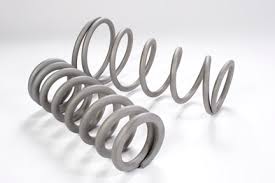
Titanium Based Alloys
Titanium Grade 5 – Titanium 6Al-4V
Titanium Grade 5 alloy is the most commercially available titanium alloy. It offers a very good combination of toughness and high strength. Grade 5 titanium has good fabrication and welding characteristics.
Applications
Aerospace, Marine, Chemical Processing, Medical
Standards
ASME SB-265,ASME SB-348, AMS 4911, AMS 4928, AMS 4967, AMS 4965
Titanium Grade 6 – Titanium 5Al-2.5Sn
Titanium Grade 6 alloy hasgood stability weldability,and strength in elevated temperatures.
Applications
Aerospace
Standards
ASME SB-381, MIL-T-9046, AMS 4966, ASME SB-348,MIL-T-9047, AMS 4956, ASME SB-265, AMS 4976, AMS 4926, AMS 4910,
Forms Available
Bar, Sheet, Forgings Plate, Wire
Titanium Grade 9 – Titanium 3Al-2.5V
Titanium Grade 9 has medium strength that lies between Grade 4 and Grade 5. It has very good corrosion resistance and is widely used in industrial andaerospace applications. Grade 9 titanium can be used in higher temperatures than Grades 1, 2, 3 and 4. Grade 9 titanium has excellent cold rolling properties.
Applications
Aerospace, Chemical processing, Automotive, Medical, Consumer applications, Marine, Transportation
Standards
AMS 4944,AMS 4943, ASME SB-338
Forms Available
Bar, Plate, Forgings, Wire, Sheet,
Titanium Grade 12 – Ti-0.3-Mo-0.8Ni
Titanium Grade 12 alloy is similar to Titanium Grades 2 and 3 except that Titanium Grade 12 has 0.8% of nickel and 0.3% of molybdenum. This provides enhanced corrosion resistance.
Applications
Chemical processing, Power generation, Desalination, Industrial
Standards
ASME SB-338
Forms Available
Tube
Titanium Grade 19 – Titanium Beta C
Titanium Grade 19 can be heat treated and has extremely high strength. It provides very good resistance to corrosion and stress.
Applications
Automobile, Aerospace
Standards
MIL-T-9046, ASME SB-348, MIL-T-9047, AMS 4958, AMS 4957, ASME SB-265
Titanium Grade 23 – Titanium 6Al-4V ELI
Titanium Grade 23 is similar to Titanium Grade. But it contains lower amount of oxygen, iron and nitrogen.And it has better fracture toughness and ductility than those of Titanium Grade 5.
Applications
Aerospace, Marine, Chemical Processing, Medical
Standards
AMS 4911, AMS 4930, AMS 4928, AMS 4931, AMS 4965, AMS 4935, AMS 4967, MIL -T-9046, AMS 4991, AMS 4985, MIL -T-9047, BSTA 10,11 and 12, DIN 3.7165, BSTA 28,56 and 59, AMS 4907 ELI, AMS 4956 ELI , AMS 4930 ELI, UNS R56407, ASTM F136 ELI
Forms Available
Bar, Plate, Forgings, Welding Wire, Sheet, Wire
Titanium 6Al-6V-2Sn – Titanium 6-6-2
Titanium 6-2-4-2 has impressivestability, strength, and creep resistance to temperatures as high as 550 °C.
Applications
Gas, Engine afterburner ,Turbine Compressor, Aerospace
Standards
AMS 4919, AMS 4975, AMS 4952, DIN 3.7164, GE B50TF21, GE B50 TF22, GE B50TF22, MIL F-83142, GE C50TF7, MIL T-9046, MIL T-9047, UNS R54620, PWA 1220
Forms Available
Bar, Sheet , Plate
Titanium 6Al-2Sn-4Zr-2Mo – Titanium 6-2-4-2
Titanium 6Al-6V-2Sn is an Alpha Beta two-phase alloy. It is often used in aged, annealed, or solution treated conditions. It’s a high strength heat treatable alloy with lower ductility and toughness than Titanium Grade 5 (6Al-4V) and it’s difficult to weld. Cold forming of Titanium 6Al-6V-2Sn is difficult due to its large amount of spring-back and high strength. This grade of titanium can be welded by the inert gas but the heat-affected area will have less toughness and ductility than the parent material. The hardness of Titanium 6-6-2 is roughly Rockwell C 36-38. This grade of titanium is mainly used for rocket engine cases, airframe and jet engine parts, and ordinance components. Please make a call to us to determine our minimum item quantity.
Applications
Airframe Components, Ordinance Components, Jet Engine Parts, Rocket Engine Cases
Standards
MIL-T-9047, AMS 4981
Forms Available
Bar, Sheet, Wire, Plate, Fittings, Forgings, Seamless Pipe,Flanges, Seamless Tube, Welded Tube, Welded Pipe
Titanium 6Al-2Sn-4Zr-6Mo – Titanium 6-2-4-6
Titanium 6Al-2Sn-4Zr-6Mo is an Alpha-Beta Alloy. It’s usually considered the workhorse alloy of the titanium industry. The alloy is fully heat-treatable in section whose size is up to one inch and is used up to approximately 400°C (750°F). Due to the fact that it is one of the most commonly used alloys (over 70% of all melted alloy grades are a sub-grade of Ti-6-4,) its use spans many airframe components and aerospace engine. Titanium 6Al-2Sn-4Zr-6Mo is also applied in many non-aerospace occasions, such as offshore, marine, and power generation industries. This Alpha-Beta alloy combines good strength and corrosion resistance with fabricability and weldability. The alloy is usually available in the form of bar and it’s generally used in deep sour well. This kind of alloy can be cold or hot formed. Please make a call to us to determine our minimum item quantity.
Applications
Aerospace Engines, Marine Applications, Airframe Components, Power Generation Applications, Offshore Applications
Standards
AMS 4981
Forms Available
Bar, Sheet, Plate
Titanium 8Al-1Mo-1V – Titanium 8-1-1
Titanium 8Al-1Mo-1V is a near Alpha alloy that was mainly designed for use in elevated temperatures – up to 455 degrees Celsius. It has the lowest density and highest modulus among all titanium alloys. It has excellent creep strength and is weldable by resistance-welding and inert gas fusion. Titanium 8Al-1Mo-1V is used in annealed condition for such jet engine parts and airframe that require superior creep resistance, high strength, and very good stiffness-to-density ratio. The machinability of this grade is similar to that of Titanium 6Al-4V. Please make a call to us to determine our minimum item quantity.
Applications
Jet Engine Parts, Airframe Parts
Standards
MIL-T-9046, AMS 4972, MIL-T-9047, AMS 4973, AMS 4915, AMS 4916, AMS 4955
Forms Available
Forgings, Sheet, Bar, Strip, Plate, Wire, Extrusions
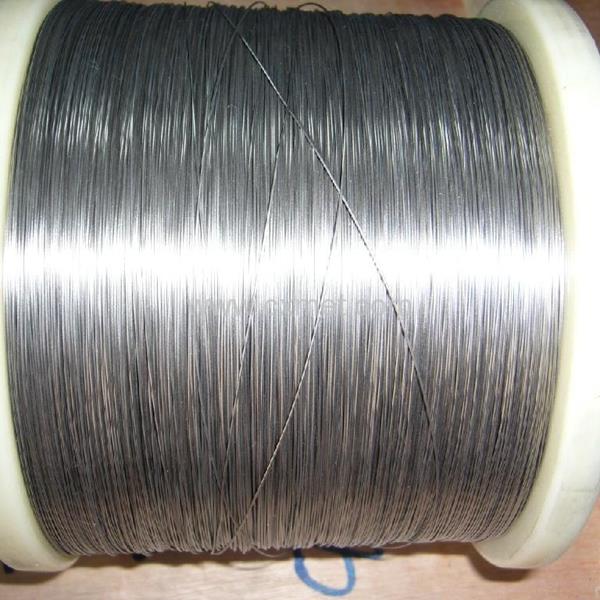
Titanium 10V-2Fe-3Al
Titanium 10V-2Fe-3Al is a Titanium Beta alloy. It is harder and stronger than many other titanium alloys. This type of titanium is a heat-treatable alloy. It’s weldable and is easily formed. Titanium 10V-2Fe-3Al is an all Beta alloy and is harder to machine than most other titanium alloys. The main problems include spring-back, flank wear, and chip control. Due to these characteristics, positive rake chip grooves combined with light hones on the cutting edge have an advantage. Please make a call to us to determine our minimum item quantity.
Applications
Airframe Components, Disks, Wheels and Spacers, Compressor Blades
Standards
AMS 4983, AMS 4986, AMS 4987, AMS 4984
Forms Available
Bar, Plate, Forgings, Sheet, Seamless Tube, Seamless Pipe, Wire, Welded Pipe, Welded Tube
Titanium 15V-3Cr-3Sn-3Al
This Metastable-Beta alloy is mainly used in the form of sheet metal. It is highly cold-formable and age-hardenable. Titanium 15V-3-3-3 is often used for the replacement of hot-formed Titanium Grade 5 (6Al-4V) sheet. It can also be used as foil and is a very good alloy for castings. For application in aerospace, this grade of titanium is often specified as AMS 4914. Please make a call to us to determine the minimum item quantity.
Applications
Aerospace Tank Applications, Castings, Airframe Applications, High Strength Hydraulic Tubing , Fasteners
Standards
ASTM B265, AMS 4914
Forms Available
Foil, Sheet
Titanium Alpha Alloys
Commercially pure titanium and alpha alloys of titanium are non-heat-treatable and have excellent welding properties.
Applications
Cryogenic applications, Chemical processing equipment, Airplane parts
Standards
AMS 4973, AMS 4924, AMS 4976, MIL-T-9047, AMS 4972, GR-6 MIL-T9046, AMS 4910, AMS 4909, ASTM B265, AMS 4966, AMS 4915/4916, AMS 4966, AMS 4924, MIL-T-81556A A-1, AMS 4933, MIL-T-81556A A-4, MIL-T-81556A A-2
Forms Available
Bar, Plate, Forgings, Sheet Extrusions
Titanium Beta Alloys
Titanium Beta or near Beta alloys are completely heated treatable and generally weldable. It has high strength and good creep resistance at intermediate temperatures.
In solution treated conditions, Beta alloys can have excellent formability.
Titanium Beta alloys are ideal for sporing. Commonly seen Titanium Beta Alloys include:
Ti3Al8V6Cr4Mo4Zr, Ti-3Al-8V-6Cr-4Mo-4Zr, ASTM Grade 19, ASTM Grade 21, AMS 4983, 4984 and 4987, Ti-15Mo-3Nb-3Al-2Si, Ti-15Mo-3Nb-3Al-2Si, Ti-10V-2Fe-3Al, AMS 4914
The Metastable Titanium Beta alloys are heat-treatable by aging and solution treatment. Completely stable beta alloys can only be annealed.
Applications
Aerospace
Standards
ASTM Grade 19, AMS 4914, ASTM Grade 21, AMS 4984, AMS 4983, AMS 4987
Forms Available
Forgings
Titanium Alpha-Beta Alloys
Titanium Alpha Beta alloys are heat-treatable. Most of them are also weldable. The typical characteristics of Titanium Alpha Beta alloys are: medium to high strength; high temperature creep strength is not lower than most other alpha alloys; limited quality of cold forming while the quality of hot forming is normally very good.
The most frequently used Titanium Alpha Beta alloy is Ti 6Al-4V. Titanium 6Al-4V has been developed in many variations for a number of different applications.
Other Titanium Alpha Beta alloys include: 6Al-4V-ELI, 6Al-2Sn-4Zr-2Mo , 6Al-6V-2Sn, 3Al-2.5V 8Mn
Applications
Aircraft and aircraft turbine parts, Prosthetic devices, Marine hardware, Chemical processing equipment
Standards
ASME SB-265, ASME SB-348, AMS 4911, AMS 4965, AMS 4928, MIL-T-9047, AMS 4967, AMS 4930, AMS 4981, AMS 4930, MIL-T-9046, AMS 4971, AMS 4918, ASTM F 136, AMS 4908, DMS1879/2237, ASTM B348, AMS 4943, MIL-T-9047 G, BMS 7-348, AMS 4975, AMS 4928, AMS 4976, DMS 1570, AMS 4934, AMS 4920
Forms Available
Bar, Flanges, Fittings, Flanges, Forgings, Sheet, Plate, Wire, Tube
Conclusion
Thank you for reading our article and we hope it can help you to have a better understanding of different grades of titanium and titanium based alloys. If you want to learn more about titanium products, we would like to advise you to visit Stanford Advanced Materials (SAM) for more information.
Stanford Advanced Materials (SAM) is a worldwide supplier of titanium products and has over two decades of experience in the manufacture and sale of pure titanium as well as titanium alloys. As such, we are confident that SAM will be your favorite titanium supplier and business partner.


